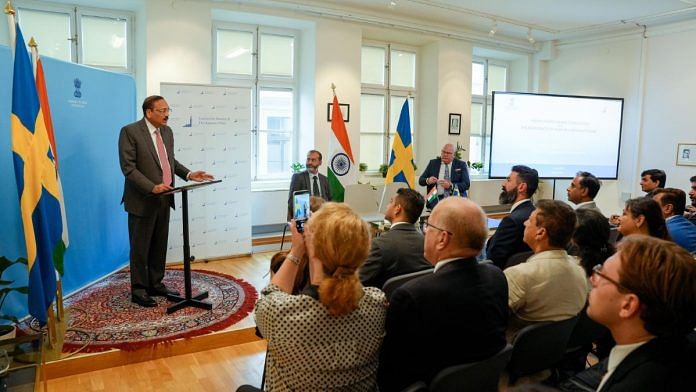New Delhi: Addressing a gathering in the Swedish capital of Stockholm, Supreme Court judge Surya Kant said India “has historically demonstrated a strong commitment” to human rights, while some countries with “rigid immigration policies” and a “tendency to resort to excessive use of force” position themselves as champions of the cause.
He made the remarks while speaking on the topic of ‘Human rights, the Indian Constitution and India as a resilient power’ at the Indian embassy earlier this week.
Justice Kant, who will take over as the Chief Justice of India in November this year, said India has a long acquaintance with the “concept of human rights”, its “deep-rooted principles ingrained in our ancient texts, influencing our lives across centuries and epochs”.
He added that “it is somewhat paradoxical when countries with some of the most rigid immigration policies—and a documented tendency to resort to excessive use of force, even in response to minor infractions—position themselves as the foremost champions of human rights”.
“Such critiques, when unaccompanied by self-reflection or contextual understanding, undermine the very values they claim to uphold,” he added.
Justice Kant said every nation has its own human rights framework and “crisis responses in accordance with its legal traditions, socio-political realities, and cultural ethos”.
He further said that “it is vital to recognise and respect this diversity of approaches” while engaging in global conversations on human rights.
“Meaningful progress lies not in uniformity, but in mutual understanding, where each nation is afforded the dignity of its own path, shaped by both heritage and contemporary responsibility,” said the future CJI.
(Edited by Gitanjali Das)






